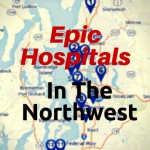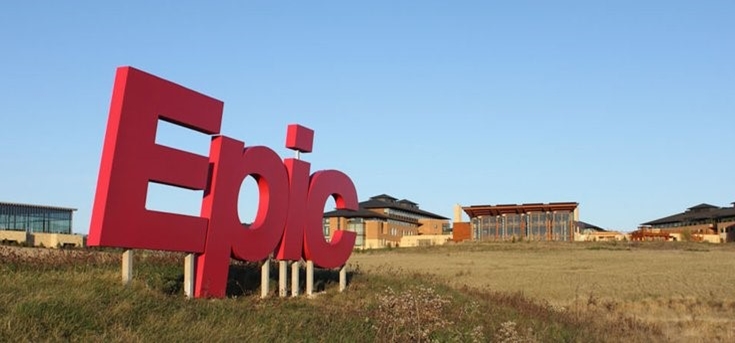Epic Systems is a major provider of electronic health records software for large and medium-sized organizations. They were founded in 1979 by Judy Faulkner, who continues to lead the company. They are based in Verona, WI and sit on a massive 950 acre campus. They are privately-held, and have vowed to never be sold, to never to go public, and to never acquire other companies.
A key reason why Epic Systems has become a technology leader with healthcare organizations is that they built an integrated platform for almost all areas of care. When Epic sees the need to advance technology in a new specialty, let’s say Eye Care for example- they take the time to develop what they call “modules”, built on the same platform and data structure as all of their other products. Here is a breakdown of the major Epic Systems modules that they have released, along with the areas where they are used:
ASAP ER Module
ASAP is the Epic software module that deals with managing ER visits. It has a component that tracks which rooms are occupied, displaying room and bed status on monitors that are mounted on the walls near the nursing stations.
EpicCare Ambulatory
EpicCare Ambulatory is one of the main and largest components of the Epic platform. Primary Care and Specialty clinicians use the Ambulatory Module to document visits, place orders, send prescriptions, perform in-office procedures, review results, and send communications to patients.
Epic Beacon Oncology
Beacon Oncology is the chemotherapy module in the Epic software family. It is built around treatment plans for patients who are undergoing cancer treatment. Whereas most patient visits are either Outpatient or Inpatient, these visits are considered Series Visit Types, which span a longer amount of time.
Epic Bugsy (Infection Control)
Bugsy is the infection control module for Epic. It provides tools to monitor patients at risk for infection, identifies patients needing isolation, and with antimicrobial processes. It also helps with reporting infections to regulatory registries and other entities. Bugsy also integrates with Beaker, Epic’s lab product.
Epic Beaker
Epic Beaker is the laboratory system for a hospital lab. Orders that are placed either in other parts of Epic or in an external system are transmitted to Beaker via an HL7 Interface1 for processing. When patients arrive to have their blood drawn, the results are entered into Beaker, which then get transmitted back to the ordering doctor.
Epic Bones
The Bones module is Epic’s offering for Orthopedics and Sports Medicine.
Epic Bridges
Epic Bridges is the module for installing, configuring and maintaining interfaces to systems outside of Epic. There are tools to set up the interface connections either to or from other interfaces, as well as monitoring of interface messages. Bridges supports HL7 interfaces, as well as other communications protocols.
Epic Caboodle – aka Cogito Data Warehouse
This area of Epic software refers to the data warehouse and analytical tools used to store and retrieve large amounts of clinical data. The data can be queried to provide all manner of reporting to support care decisions, manage costs, and identify trends. Other data can be brought in from non-Epic systems, and then used along with Epic data to provide reporting results. Until mid-2016, the trade name for these tools was Cogito, from the Latin phrase ergo sum: “I think, therefore I am”. In mid-2016, Epic renamed it to “Cabooble”, ie Kit & Caboodle. Get it?
Epic Cadence
Cadence is the Epic scheduling module for Outpatient and Specialty clinics. Any time you have an appointment with your doctor, their scheduling staff will use Cadence to book your appointment, then check you in on arrival. The physicians and other staff are able to see the schedule for the whole clinic, or just for their own patients. Many scheduling functions are performed from the Epic Snapboard, which is configured to show appointments for multiple providers in a department.
Epic Care Companion
Care Companion is an extension of the MyChart patient portal. It provides health coaching, education, and reminders to patients via MyChart to help them manage complex health conditions. For example, a patient with diabetes would get reminders to take medications on time, get lab work done, schedule periodic eye and foot exams, and monitor their diet and glucose.
Epic Care Everywhere
Care Everywhere is the network by which patient records are shared between different Healthcare organizations that use Epic. If you receive care at an Epic hospital in say, New York for example, then move to another state or even another country, your new care providers can run a Care Everywhere query from their instance of Epic to pull in your records from your previous providers. Care Everywhere operates as a Health Information Exchange.
Epic Compass Rose
Compass Rose is a module that works to increase care coordination for patient populations. It is an extension of Healthy Planet, the population health suite, and it works to address social determinants of health, connect caregivers to support networks, help to connect people to community services, identify risks, and measure outcomes.
Epic Cosmos
Cosmos is the artificial intelligence tool that works to collect billions of clinical data points from Epic organizations to help providers answer clinical questions. It is designed to help medical specialties to form a more complete picture of patients’ health.
Epic Chronicles
Chronicles is the main database that runs much of the Epic software. Epic provides Healthcare clients with tools to run queries, maintain the database, and run reports. Chronicles is a non-relational database that sends data to Clarity, which is a relational database, and is used for advanced reporting.
Epic Clarity
Much of the data that is stored in the Chronicles database gets copied over to Clarity, which is a relational database that allows analysts to create more detailed and complex reports. Reports written against the Chronicles database are done using reporting workbench, which has data size and functionality limitations that do not exist with Clarity reports..
EpicCare ClinDoc (Inpatient)
EpicCare Inpatient, also known as ClinDoc is much like EpicCare Ambulatory, except that the clinical tasks are done in the hospital on admitted patients. This includes clinical notes, orders, medication administration, patient monitoring, and discharge orders.
Epic Cogito
Cogito is the name for the complete suite of Epic reporting tools. This includes the data warehouse, the dashboards used in many areas of Epic, Reporting Workbench, the Clarity data structure, and teh Chronicles data structure.
Epic Community Connect
Epic has provided a unique opportunity to allow large healthcare organizations to “sub-let” their Epic system to smaller organizations at a fee. For example, you may have a physician office with a handful of providers who would not be able to afford to purchase the Epic software on their own. A local large hospital system will organize a team to handle the entire project of software and hardware configuration, training, and maintenance. The hosting organizations typically charge a monthly per-provider fee.
Epic Cupid
Epic Cupid is the module for Cardiology practices. There are special clinical tools focused on cardiology care. Epic can also integrate or interface with external EKG devices to bring the EKG readings into the medical record.
Epic Data Courier
Data courier is a utility used by Epic analysts and technical staff to move configuration changes between different environments. For example, an analyst will make changes in the POC (proof of concept) environment, then use data courier to move those changes to the test (TST) environment for testing. After testing, data courier will be used to migrate the changes to production (PRD). More on how IT environments are structured.
Epic Financial Assistance
The financial assistance module helps organizations that provide financial assistance to patients. It has financial counseling workflow tools to help capture financial counseling information and track discounts given to patients.
Epic Garden Plot
Garden plot is a little like Community Connect, in which a smaller organization is able to rent the EHR software from a larger hospital group. Garden Plot, however is leased to the client by Epic themselves, and the organization must be larger than 40 providers.
Epic Happy Together
Happy Together is Epic’s effort toward communicating clinical information across different systems, including data from competing vendors. Happy Together is implemented to help clinicians and patients. For clinicians, it provides a complete view of patients’ care across various organizations.
Many patients use Epic’s patient portal MyChart at more than one Epic location, such as a primary care office from one organization, and a specialist from another. Happy Together enables patients to see their clinical data from multiple locations in one MyChart session.
EpicCare Home Health – (Dorothy)
Also known as Dorothy (from The Wizard of Oz) this is the module used in a home health setting, in which visiting caregivers (Nurse, Nurse Aides, PT, OT, etc) document care done in a patient’s home. Clinicians use a version of Epic called remote client that is installed on their local laptops. This program allows them to document in settings where they might not have any internet connection. Then after they finish their work, they can reconnect to their organization’s network and perform a sync that uploads their documentation to the main Epic servers.
Epic Hyperspace
Epic Hyperspace is not a clinical module in itself, but rather the actual application client that is presented to users of most areas of Epic. When a nurse, doctor, therapist, or administrative staff launch Epic, the front-end software that is presented to them is called Hyperspace. It is typically installed on hosted servers that are accessed by many workstations throughout an enterprise, rather than being installed on individual users’ PCs. Citrix is commonly used to host Hyperspace.
Since it is a core component of the Epic software system, upgrades almost always include an update of Hyperspace. Epic Hyperspace is configured to display different menus, tasks, and options to users depending on their specific roles. For example, a pharmacist will be presented with many medication-related options, while a family practice physician will be presented with options to document clinical visits, place orders, and perform other clinically relevant tasks.
Epic Hyperdrive
Introduced in 2023, Hyperdrive is Epic’s next generation version of the front-end application accessed by most end-users of Epic. It replaces Hyperspace for many clinical and operational functions. It is web-based code base that is intended to assist Epic developers in current and future development of features and functions, and it has some cosmetic improvements over Hyperspace.
Epic Haiku
Epic Haiku is an App for Android and Apple that allows doctors to access a limited version of EpicCare Ambulatory. They can see and respond to test results, access their schedule, and see other clinical data on their patients.
Epic Healthy Planet
Healthy Planet is Epic’s Population Management system to help organizations deliver better care for a given population of patients. It is a direct outcome of the Affordable Healthcare Act, which established voluntary entities called Accountable Care Organizations. An ACO is set up to pay providers not just for delivering services, but for the healthy outcome of the patients who are enrolled in the ACO. Healthy Planet provides a suite of reports, dashboards, and workflow tools that allow Care Managers to manage patient populations in and apart from ACOs.
Epic Lumens
Lumens is the reporting module for endoscopy. It provides tools for viewing and managing endoscopy images sent to Epic by external endoscopy systems.
Healthy Planet Link
EpicCare Link enables outside health organizations to log into a web-based portal to see patient information from the Epic system of a larger Healthcare organization. Healthy Planet Link then extends some population health features to those outside entities. Those organizations can view risk scores and reports on their common patients.
Epic Kaleidoscope
Epic Kaleidoscope is the Ophthalmology (Eye Care) module for Epic. It allows Ophthalmologists and Optometrists to perform eye exams, document eye related procedures, and write contact lens and eyeglass prescriptions.
EpicCare Link
When a hospital or other healthcare enterprise installs Epic software, they typically interact with community physicians who do not have Epic, many of which do not have any electronic medical record system. EpicCare Link allows those providers to be given access to a web-based portal, allowing them to have limited use of the EMR to view activity on their patients who have received care at the associated hospital. It is usually configured to provide read-only access, meaning the external provider cannot place orders or do other clinical activity.
Epic Lucy
Lucy is not exactly a module, but is a concept of allowing patients to download and print their medical record in a usable format. This is called a Continuity of Care Document (CCD), and is considered a form of a personal health record.
Epic MyChart
MyChart is the web-based system that allows patients to manage their medical care in many ways. They can view test results, past and future visits, orders, medications, and more. They can also request appointments with physicians and ask non-urgent medical questions. A supporting App for Android and Apple is also available. Also, a newer feature that is beginning to emerge is the ability to conduct video visits with physicians. More about patient portals.
MyChart Bedside
Where MyChart is focused mainly on the outpatient and specialty parts of the patient record, MyChart bedside is intended for use while a patient is admitted to the hospital. It provides online tools for tracking your progress toward discharge, and can be configured to provide patient education material.
Open Epic
Open Epic is a public forum that shares code to facilitate development of applications which integrate with Epic. It allows the use of application programming interfaces (APIs) to assist in integration efforts. Open Epic also allows for application development using the FHIR standard.
Epic Open Scheduling
While a MyChart user needs to have registered before scheduling through that portal, Epic’s Open Scheduling feature allows organizations to publish a web URL that allows anyone to enter a request to be seen. A MyChart account is not needed. It is commonly used for routine scheduled procedures like mammograms. The patient will be required to answer a few medical and history questions, and then will be able to pick an appointment date and time. Even though the web page appears to be separate from MyChart or the rest of the system, the scheduling info is still sent to the main Epic system for staff to manage.
Epic OpTime
Epic OpTime is the Operating Room/ Surgery module for Epic. It has components for Inpatient Surgery as well as Outpatient Day Surgery.
Epic Payer Platform
Payer Platform is a module that allows healthcare organizations to exchange clinical information with insurance carriers to facilitate prior authorization and payment for services.
Epic Pedigree
Pedigree is Epic’s module to capture and analyze genetic information. Clinicians can build a family tree, manage family history, and get information on genetically related conditions.
Epic Phoenix
Phoenix is the module that supports organ transplants. Phoenix helps clinicians to keep track of follow-up tasks for recipients such as ongoing lab tests, rejection prevention and treatment, and medication management.
Epic Prelude (ADT Patient Registration)
ADT stands for Admission, Discharge, Transfer. ADT is a critical part of the entire organization’s system because this is where the key information and status of all patients is managed. The Prelude module covers the hospital registration and insurance functions. ADT is also referred to as Grand Central.
Epic Radar
Radar is the dashboard configuration that is shared across almost all other Epic modules. Dashboards support reports, graphs, performance measures, helpful links, and much more pertaining to each area. For example, an OB dashboard will have measures relating to C-Section rates and number of births.
Epic Radiant
Epic Radiant is the Radiology module for Epic. It provides documentation, film tracking, and viewing of Radiology images.
Epic Slicer Dicer
Slicer Dicer is a visual reporting tool within Epic that allows non-technical users to easily create clinical reports by moving around reporting components in an editor. It works a bit like Crystal Reports or similar tools but has an easier user interface.
Epic Sonnet
Epic Sonnet is a trimmed-down version of the main clinical application that is aimed at smaller organizations that cannot afford or don’t need the full-featured version. Epic will offer Sonnet to organizations as a software service hosted at their campus data center in Verona, WI.
Reporting Workbench
This is Epic’s application-side reporting solution which allows IT analysts to create and manage reports on date from most parts of the system. Users work from templates to get data on patient lists, orders, appointments, diagnoses, and much more. In Reporting Workbench, users do not run SQL queries to the database, as the tool is visually oriented.
Epic Rover
Epic Rover is the module that uses mobile devices to allow Inpatient nursing staff to do review and documentation tasks. Some of the functions that Rover helps with are chart review, medication administration, flowsheet documentation, and recording patient photos. It is not intended to take the place of Epic Hyperspace, the standard client for accessing clinical functions.
Epic Stork
Epic Stork is the Obstetrics module for managing pregnancy episodes on the Outpatient side, and documenting deliveries in the hospital.
Epic Tapestry
Tapestry provides managed care administration, enabling organizations to enroll members, bill for insurance premiums, process referrals, and pay claims. It works within several different payment structures such as ACOs and various types of health plans.
Epic UserWeb
UserWeb is not a product used by clinicians, but is the web portal used by customers of Epic. It is used by analysts, project managers, resource managers, executives and others to access documentation, training, issue management and other tools for managing the system.
Epic Welcome Kiosk
The Welcome Kiosk is about the size and shape of a small ATM, and allows patients to check in for appointments, pay co-pay amounts, sign documents, and print receipts and other materials.
Epic Willow
Willow is the module which is used for the management of medications from a central pharmacy. It owns the core database of medications and the processes around medication cart filling and patient prescriptions. There are Inpatient and Ambulatory versions of Willow. The Inpatient side is implemented in a hospital pharmacy, and Ambulatory Willow is for outpatient and retail pharmacies.
Epic Wisdom
Wisdom is the Epic solution for dentists, dental hygienists, and dental assistants. It has tools for periodontal charting, tooth health charting, scheduling, treatment plans, and risk assessments.

Read More

Read More



